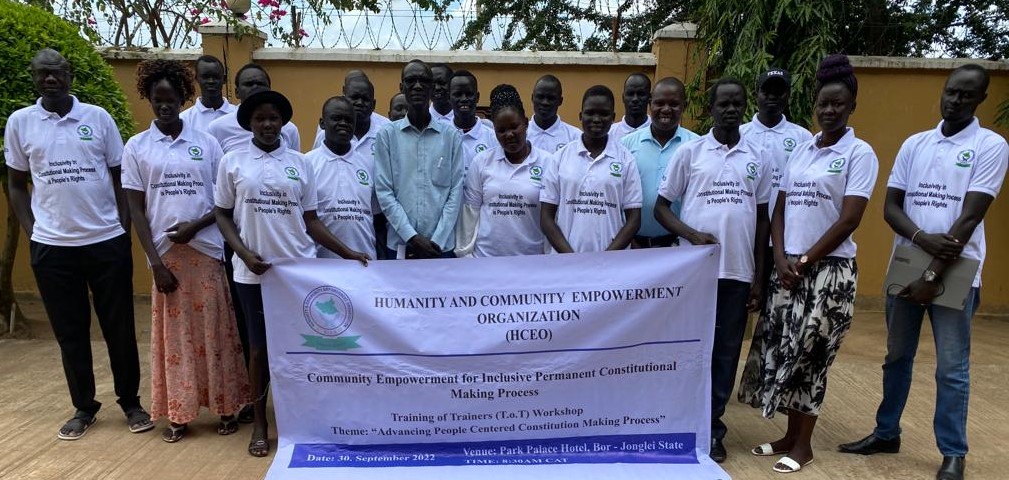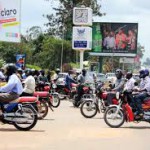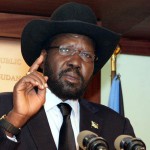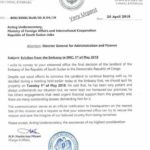South Sudan’s Jonglei state authorities should widen the civic space to enable civil society actors sensitize citizens on their roles and obligations towards peace building, governance and a democratic society.
The follows a workshop on inclusive permanent constitutional making process for civil society entities and community based organizations held in Bor last week.
“The permanent constitution making process is one of the most important provisions of the peace agreement and the Transitional Constitution of South Sudan 2011, as amended. Humanity and Community Empowerment Organization (HCEO) stands for full implementation of the agreement in letter and spirit,” Moses Gizam, the Executive Director of HCEO said at the workshop.
“Without an informed citizenry, there cannot be a democracy,” he stressed.
The state human rights advisor, Simon Manyok Deng lauded the organizers of the training workshop for advancing a people-centered constitution making process.
“Constitution making process is a huge task to all of us. The civil society is a common ground for both government and the community to operate,” said Deng.
He added, “Please do not mix your vision and mission with your party colours”.
Bol Deng Bol, the chairman of Jonglei State civil society network said the workshop provided an opportunity for citizens to openly express their opinions.
“This is our constitutional right. There is no way we can make an inclusive constitution without enabling citizens’ participation in the process,” explained Bol.
He urged lawmakers to expedite enactment of bills vital for constitutional making.
The one-day workshop on the theme, “advancing a people-centered constitution making process”, aimed at empowering CSOs and CBOs in Jonglei State with knowledge and skills essential for a permanent constitution for South Sudan.
A decade after South Sudan attained independence, restrictions to human rights and fundamental freedoms have led to shrinking civic space as the environment in which citizens organize and participate in governance has remained hostile.
This is despite provisions contained in the Transitional Constitution of South Sudan, regional and international treaties that guarantee respect for human rights.








